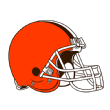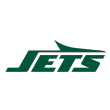Offseasons can be tricky for the NFL's top teams.
Playoff teams draft in the final 12 picks of each round, making it hard to replace aging stars or find elite, young players. Because of four-year rookie contracts and the inability to open extension talks until the final year before free agency, the chances of keeping successful draft choices between Rounds 2 and 7 aren't great, particularly with the salary cap going up more than $10 million per year. If a team is loaded with great talent, cap problems hit, forcing general managers to pick and choose which players to keep.
Several teams improved during the offseason, but others regressed. Here are the five teams that took a few steps backward this offseason, starting with the defending Super Bowl champions and continuing in order:

1. Denver Broncos
This shouldn't be a surprise. The Broncos lost three of the 15 highest-paid unrestricted free agents -- quarterback Brock Osweiler, defensive end Malik Jackson and linebacker Danny Trevathan. Peyton Manning retired, and Osweiler signed a big deal with the Texans. The offense line changed with Louis Vasquez, Evan Mathis and Ryan Harris no longer aboard, a net loss of 2,565 plays last season, though the Broncos added tackles Russell Okung and Donald Stephenson. Tight end Owen Daniels was released.
General manager John Elway and coach Gary Kubiak had to change the way the Broncos played last season. Manning struggled. Osweiler was learning on the job for seven games. That forced the Broncos to win with defense. Those 28-17 games turned into 20-17 games. Until the offense gets more out of the quarterback position -- Mark Sanchez is the presumed starter, for now -- the Broncos might not be that 12- or 13-win team, but because of their defense, they are still good enough to win double-digit games.
Defensive coordinator Wade Phillips still has plenty of great players to utilize. As Phillips said this week, Jackson is their only loss from their nickel package. Most teams use the nickel more than 60 percent of the time. Denver is the classic example of a team that is a victim of its success. They drafted seven starters in the 2011 and 2012 drafts along with Osweiler. Five of eight members in that group left in free agency.

2. Carolina Panthers
Pulling the franchise tag on cornerback Josh Norman hurt in several ways. The Panthers remain a top-level defense, but Norman's departure minimized chances to upgrading the entire roster. Three of the team's five draft choices were used on cornerbacks. That left few resources to upgrade other areas.
But don't throw a pity party for the Panthers. They are still the odds-on favorites to win the NFC South, and quarterback Cam Newton now has the ability and confidence to help carry them back to the Super Bowl. They should expect a drop, however. You know they weren't going to go 15-1 in back-to-back years. More than likely, they will be somewhere around an 11-5 team.
With the losses of Norman, safety Roman Harper and cornerbacks Charles Tillman and Cortland Finnegan, the Panthers lost 2,539 snaps from 2015. Bene Benwikere, the third corner last year, is now the No. 1 unless one of their three draft choices emerges. Tre Boston, a backup safety last year, is now a starter. And the team does have concerns about the pass rush. First-round pick Vernon Butler can play as an inside pass-rusher in the nickel, allowing Kony Ealy to move to an outside pass-rushing role. Ealy's development is now one of the keys to the season. Charles Johnson is no longer an elite pass-rusher, and he took a major pay cut to stay. The Panthers are still good, but their roar isn't as strong as it was last year.

3. Cleveland Browns
Coach Hue Jackson calls this season a reboot, and the numbers point to a team moving backward in an effort to go forward. But after a 3-13 season in 2015, how much worse can the Browns possibly become next season?
The Browns are putting everything into the draft. They had 14 draft picks this year, but they created plenty of holes. Among their losses: center Alex Mack, right tackle Mitchell Schwartz, wide receiver Travis Benjamin, linebacker Karlos Dansby and safeties Tashaun Gipson and Donte Whitner. There is no way the draft choices will be equal to the talent that departed.
Linebacker Demario Davis and safety Rahim Moore were the Browns' only unrestricted free-agent additions because they opted to stock up on 2017 compensatory picks to add more youth to the roster next season. They've also pinned their hopes at quarterback on Robert Griffin III and Cody Kessler.

4. New York Jets
The Jets went against the odds last year and had great success. They totally rebuilt the secondary by hitting free agency hard. General manager Mike Maccagnan traded for gold, getting Brandon Marshall and Ryan Fitzpatrick in trades. Normally, big free-agent spending sprees don't work out. For the Jets, the plan worked. They won 10 games and almost made the playoffs. An easy schedule helped, but Maccagnan's checkbook made it easy for Todd Bowles to have a successful start as a head coach.
But every spending spree creates bills, and the Jets paid for it in 2016. Cap dollars were tight. They are offering around only $8 million a year for Fitzpatrick, who's now an unhappy free agent. Cornerback Antonio Cromartie was cut. Damon Harrison left in free agency. The Jets are currently down six starters who each played at least 499 snaps last season.
Change was needed, though. They finished the season with 11 starters in their 30s, and improved speed was needed on defense. The tight cap gave Maccagnan limited ability to upgrade the roster. Except for left tackle Ryan Clady, no Jets acquisition cost more than $3.5 million per year.

5. Buffalo Bills
The Bills, Jets and Miami Dolphins all invested heavily in free agency and trades last year to try to catch the New England Patriots. The Bills looked great on paper. They brought in Percy Harvin, Charles Clay, Richie Incognito and LeSean McCoy on offense. The hiring of Rex Ryan was supposed to be a boost to the defense. Coming off a great defensive season in 2014, the Bills had the look of a wild-card playoff team. I thought they had 10-win talent playing out an easy schedule that included the AFC South and the NFC East.
But the defense underachieved greatly, and the Bills disappointed, finishing 8-8. This year's Bills team isn't as talented, and the schedule is tougher. Harvin retired. Mario Williams was cut. Linebacker Nigel Bradham left in free agency. Cornerback Leodis McKelvin was cut. Because of last year's spending, the Bills didn't sign a player worth more than $1.25 million. Most of the signings were minimum-salary deals.
Ryan now must do more with less. The plan is to start the team's top three draft choices -- linebackers Shaq Lawson and Reggie Ragland, and defensive lineman Adolphus Washington. The pressure is on Ryan to get this team to the playoffs. With less talent, the job will be tougher.
